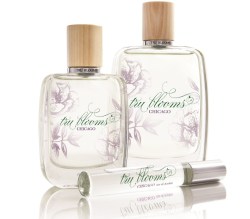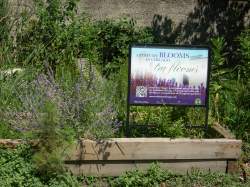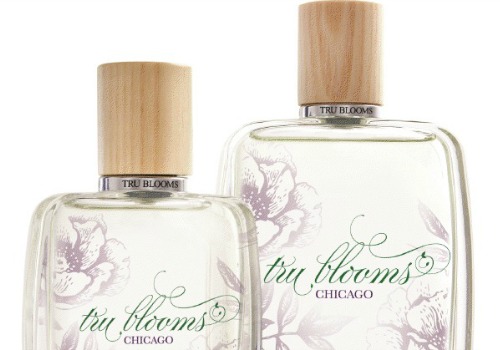
If someone told you that you smelled like Chicago, chances are that you’d dash home to bathe. But what if the remark implied not “You smell like raw sewage,” but instead “You smell like something grown in Chicago.” That compliment is now possible due to an unlikely new product: A locally sourced, city-grown perfume. Think of it as a CSA in a bottle. That you wear on a date. Or something like that.
The fragrance, called Tru Blooms Chicago, hit stores this fall. It is the brainchild of Monte Henige, CEO and owner of Tru Fragrance, a manufacturer located in the Chicago suburb of Willowbrook.
In January, Henige found himself in a brainstorming meeting. The subject of urban agriculture came up. Nothing is hotter these days than locally grown produce, right? So Henige began to play with the idea. What about a farm-to-table beauty product? Voila! Tru Blooms Chicago was born.
Henige collaborated with many of Chicago’s city agencies to grow key ingredients for the perfume — roses, lavender, and violets — in 22 local gardens. Everyone from the park district to the planning department to the office of tourism got involved. So did the Chicago Botanic Garden and urban-ag stalwarts such as Growing Power and Growing Home. The city loved the idea, especially because Tru Fragrance paid for everything, investing more than $1 million in the process.
A little more than two acres were rented and planted, spread across the city. Some flowers took root in prominent locations — Grant Park and Water Tower Place, for instance — while others were sown in neighborhood gardens and urban farms. You can locate the gardens using this nifty online map.
Countless perfumes have been inspired by cities like Paris, but according to Henige, none have actually come from those cities. “We believe the product is the first of its kind in terms of how it’s integrated into the city,” he says.
After looking around, I’d have to say he is probably right. Anyone can cook up homemade fragrances in the smallest of studio apartments, of course. And lots of perfumes brand themselves as urban. But the only other urban-made scent I could find was by Keith Urban.
“This is about being authentic,” says Henige. “There’s sophistication in the diversity of gardens and gardeners who contributed.”

The Chicago People’s Garden.
Fortunately, the sophistication involves something more than tired old green-is-good marketing. Henige says about 100 local workers were hired for the project. That number presumably did not include the inmates tending the perfume-destined flowers at the Cook County Sheriff’s Boot Camp.
Once the flowers were harvested, they were used to derive essential oils for the perfume. (Click here for an explanation of the process.) Henige couldn’t explain the chemistry involved, but given the, ahem, unique composition of Chicago’s soil and the vagaries of the local climate, one can argue that Tru Blooms must in some way smell like the Windy City. I wasn’t able to get a sample, but based on the ingredients, I suspect that the roses and lavender come through strongest.
If the perfume sells well — and it already seems to be doing so — Tru Fragrance wants to make new city-grown scents. Perhaps an eau de prairie in tribute to the Midwest’s natural heritage?
Then there are the myriad theme fragrances awaiting an olfactory evocation. What about a powerful man’s cologne, in reference to Chicago’s iron-fisted political bosses?
The possibilities, like the city’s smells, are endless.




